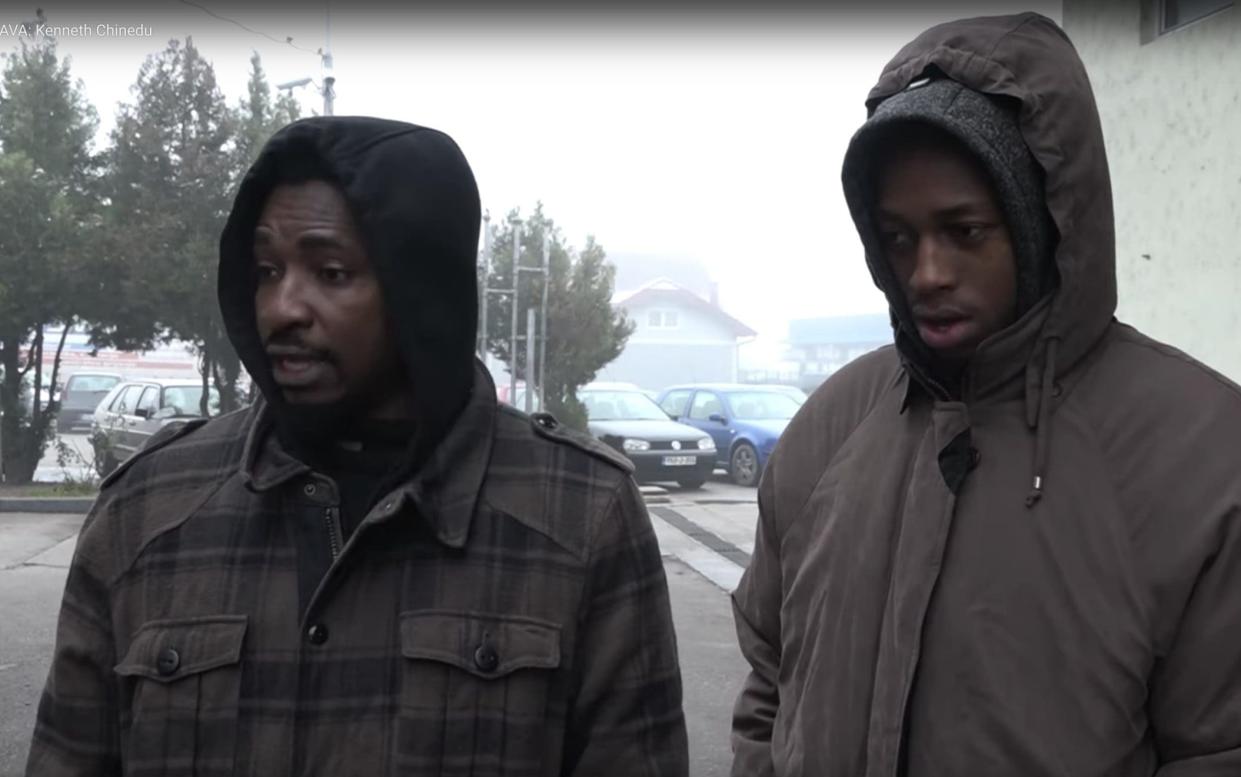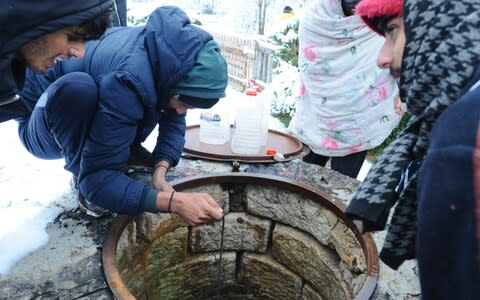Nigerian table tennis players wrongfully arrested in Croatia and forced across border into Bosnia

Two Nigerian table tennis players who traveled to Croatia for a sports competition were arrested by police, bundled into a van and forced over the border into Bosnia, it has emerged.
When they protested that they were not illegal migrants and had legitimate visas, Croatian police allegedly threatened to shoot them.
Police in the Balkans are regularly accused of pushing migrants and refugees back over national borders, four years after the Balkan migration route was all but shut down by countries in the region.
Thousands of migrants are stranded in camps, enduring sub-zero temperatures and squalid conditions.
Abia Uchenna Alexandro and Kenneth Chinedu flew from Nigeria to Zagreb last month and then traveled to the Croatian town of Pula to compete in a global student games contest called the World InterUniversities Championships.

Having taken part in the contest they returned to Zagreb on November 17, checked into a hostel and went for a stroll.
They were due to fly home to Nigeria, via Istanbul, the next day. But they were stopped by police, who demanded to see their documents – which they had left in their hostel.
The Nigerians were arrested and taken by road to a forest near the town of Velika Kladuša, on the border with Bosnia-Herzegovina.
“They put us in a van. They were laughing at us. They said ‘you go to Bosnia’. I said I flew on Turkish Airlines to Zagreb. I’ve never been in Bosnia. He said ‘no, you go to Bosnia’,” Mr Chinedu told Žurnal, a Balkan news website.
“After a while, the van stopped and we were pushed into the bushes. I refused to go into the woods. The policeman told me if I didn't move he was going to shoot me.”

They were forced over the border, with police telling them never to return to Croatia. Police allegedly tried to force them to sign documents that they did not understand.
“I said ‘I will not sign’. The officer hit me. The other one brought out his gun - if I didn’t sign he said he would shoot me. They forced me to sign. It was not in English so I didn’t understand it. I was scared. I started crying,” said Mr Chinedu.
As they were pushed over the border into Bosnia, a Pakistani migrant told them they were all being sent to a migrant camp.
“I said ‘camp? I’m not going to a camp. I have a valid visa,” said Mr Chinedu. Once in the camp, they had their money taken away - $210 and €100. “They took everything, we had no means to eat, nothing.”
They have been in the Miral camp, run by the International Organisation for Migration, for the last three weeks.
The organisers of the sports event are trying to help the Nigerians get back to Croatia and return home.
The students had valid visas and should never have been arrested, Alberto Tanghetti, an organiser, told Žurnal.
“These two students were in the competition, they had Croatian visas and return plane tickets from Zagreb to Istanbul and from Istanbul to Lagos.”
Dragan Mektić, Bosnia-Herzegovina’s minister of security, told Al Jazeera: “Those people are victims of illegal acts of the Croatian side. Respecting legal procedures, we now have to take them back to Croatia. It is obvious that they have Croatian visas, that they are in Bosnia and Herzegovina illegally. Croatian police forcibly displaced them and we have to bring them back there.”
Humanitarian organisations say at least 6,000 migrants face freezing temperatures in camps in north-west Bosnia, close to the border with Croatia.
“The situation is particularly concerning around the cities of Bihać and Velika Kladuša, where more than 3,800 people choose to remain outside formal camps, sleeping rough without access to basic services,” Medecins Sans Frontieres said in a recent report.
“MSF medical teams have referred a number of patients for specialist care for injuries caused by violence allegedly committed by Croatian and Slovenian border authorities. Teams have also treated patients who have reported being pushed back from the border.”

 Yahoo Movies
Yahoo Movies 
